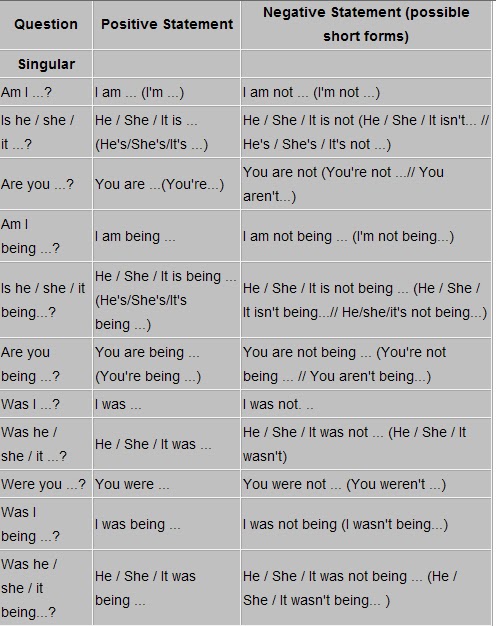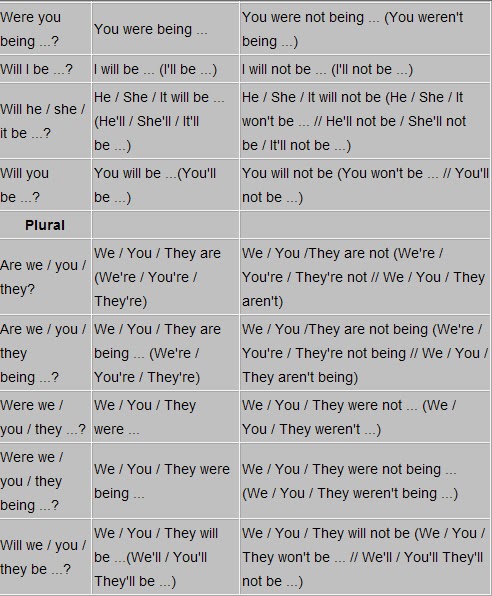Auxiliary verbs are used together with a main verb to give grammatical information and therefore add extra meaning to a sentence. Information that is not given by the main verb.
They are used to form the passive voice.
They are used to form the continuous tense.
They are used to form the perfect tense.
Be, Do and Have are auxiliary verbs, they are irregular verbs and can be used as main verbs. The verbs 'to be' and 'to have' are the most commonly used auxiliary verbs and work alongside the main verbs in any statement.
Modal verbs are also auxiliary verbs, but will be treated separately, these are can, could, may, might, must, shall, should, will, and would, they differ from the others in that they can never function as a main verb.
The Verb To Be
Probably the best known verb in the world: "To be or not to be..."
Normally we use the verb to be to show the status or characteristics of something or someone (as a stative verb). It says what I am, what you are or what something is.
When used with the present participle of other verbs it describes actions that are or were still continuing - auxiliary verb be [+ ing form of the main verb].
The verb to be is used to create simple yes/no questions by simply inverting the order of subject and the “To be” verb.
For example:-
I am a teacher. (Statement)
Am I a teacher? (Question)
Am I a teacher? (Question)
Examples
!Note - The verb to be is also used when forming the passive voice
The Verb To Do
The verb to do is another common verb in English. It can be used as an auxiliary and a main verb. It is often used in questions.
As an auxiliary verb do is used with a main verb when forming interrogative or negative sentences, or for adding emphasis. It is also called the dummy operator or dummy auxiliary.
Examples
When using the continuous tense do becomes doing and it doesn't change.
When using the simple past tense do becomes did and it doesn't change.
When using the perfect tense do becomes done and it doesn't change.












มีต่ออีกนะคะ
ตอบลบ